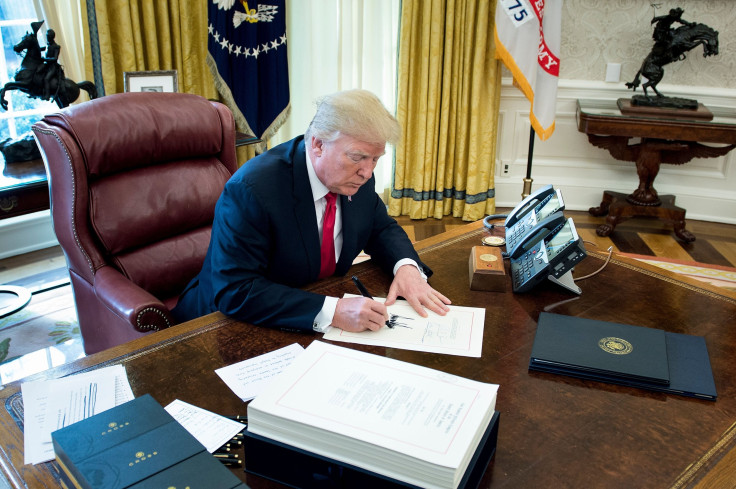Changes In H-1B Could Impact Tech Industry, Foreign Workers
The Department of Homeland Security will consider adopting new regulations that would prevent visa extension to foreign workers in the United States. President Donald Trump in April signed an executive order to review high-skilled H-1B immigration visas — a move that could severely curb employment of foreign workers.
With various visa bills under consideration by Congress, the impending threat of thousands of workers being laid off can swiftly become reality. The measure could also stop foreign workers from holding on to their H-1B visas while their green card applications are pending.
How The Bill Was Proposed
The "buy American and hire American" comments during Trump's campaign gained considerable momentum in 2016. True to his word, Trump would sign an executive order toward that end, which was drafted during his presidential transition. “Right now, H-1B visas are awarded in a totally random lottery, and that’s wrong,” Trump said in April, at its signing in Kenosha, Wisconsin, a swing state that helped win him the election.

The H-1B mandates providing employment to the most skilled and best-paid workers. The existing provisions on H1-B grants 65,000 work visas to people with “highly specialized knowledge” — in practice, jobs requiring at least a bachelor’s degree and often involving technology.
However, the visa is largely awarded to technological firms. The Trump administration perceives this as a blatant move by the companies to acquire cheap foreign labor rather than employing or training American citizens.
Many tech giants have denied allegations of hiring cheap unskilled labor in lieu of skilled workers. Google and Facebook, among others, have argued that "many fast-growing startups build on the contributions of H-1B visa holders to create jobs for U.S. citizens, and that many companies pay their H-1B visa holders more than the average American makes in a comparable job," Vox News reported.
The Impact On Tech Companies
The biggest employers of H-1B visa holders are outsourcing companies, such as IBM and Cognizant. All the leading tech companies, such as Google, Apple and Microsoft, have a large number of Indian employed in their offices, according to the New York Times. At least 15 percent of Facebook's workforce is made up of Indians.
The repercussions of the proposed changes in visa norms can drastically dwindle their numbers and the company's performance. The president's "hire Americans" stance — among the factors that helped him capture the White House — cannot be enforced without an adverse effect on the economy and the financial growth of the companies. While employing U.S. citizens will increase the employment rate in the country, a strong case can be made about the cost of this particular endeavor, which could be exponentially high to bear.
Research shows that average costs of hiring and training unskilled U.S. citizens could be higher than hiring skilled foreigners. In a study conducted by the Center for American Progress, the cost of losing an employee could be anywhere from 16 percent of their salary for hourly, unsalaried employees, to 213 percent of the salary for a highly trained position, Huffington Post reported.
There has been varied but bipartisan support to overhaul the H-1B visa program. Rep. Darrell Issa, R-Calif., introduced the “Protect and Grow American Jobs Act” which was aided by Rep. Zoe Lofgren, D-Calif.
© Copyright IBTimes 2024. All rights reserved.





















